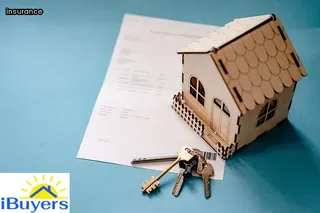A lien is a legal claim made against a property by a creditor, usually to satisfy an unpaid debt. Liens are typically placed on both real estate and personal property, such as cars or boats.
When a lien is placed on your property, it means that the creditor has taken ownership of it until the debt is paid in full. If you have not been able to pay off the debt associated with the lien, then the creditor may be able to force its sale in order to recover their money.
It is important to know if your property has a lien before you buy or sell it, since it could interfere with the transfer of ownership. Checking for liens can be done through public records searches or by talking with local government offices that handle these matters.
Additionally, lenders will often perform title searches when approving mortgages, so they can see if any previous liens were left behind by previous owners. Knowing what to look for and understanding how liens work can help ensure that you do not face any unpleasant surprises when dealing with your property.

Owning a home is a big responsibility and comes with many different facets to consider. One of these is understanding if your property has any liens against it.
Liens are legal claims on property that can prevent the owner from selling or refinancing their home until the lien is paid off. Knowing what types of liens may be on your property and how to identify them can help you understand what steps you need to take in order to make sure it’s free and clear.
Generally speaking, there are three types of liens that can be attached to a home - tax liens, mechanic’s liens, and voluntary liens. Tax liens are placed on properties when taxes are owed to the government, while mechanic’s liens are incurred when somebody performs work on a property but does not get paid for it by the homeowner.
Voluntary liens are when someone borrows money from either the bank or an individual and puts up their home as collateral for the loan. To discover if any of these types of liens exist, check with your county assessor’s office and review your credit report periodically for signs of unpaid debt.
If you find any discrepancies or potential signs of a lien, contact a lawyer immediately who specializes in real estate law for advice on how best to proceed.
Identifying a lien on your property can be a confusing and complicated process. It is important to understand the different types of liens, what they mean, and how they can affect you as the property owner.
A lien is essentially an encumbrance or legal claim against a piece of real estate in order to secure payment of some debt or obligation that the property owner owes. There are two main types of liens - voluntary and involuntary.
With a voluntary lien, one party agrees to the terms of payment with another and the lien is placed on their property for security purposes until payment is made. An involuntary lien occurs when a creditor places a claim on someone's property without their permission after they have defaulted on their loan or other obligation.
To determine if your property has any kind of lien against it, start by reviewing your title deed documents which will indicate if any liens have been placed on it. You can also consult public records at your local county office or online database to look for any liens associated with your address.
Additionally, you may need to contact lenders and creditors who might have previously provided financing for the property in order to uncover any outstanding debts that could potentially be attached to it in the form of a lien. Finally, keep in mind that liens remain active even if they were initially created many years ago so it is important to periodically check these records regularly in order to ensure no new ones have been added since your last review.

When it comes to discovering if your property has a lien, there are several steps you can take to begin the process of removing it. The first thing to do is contact the county courthouse in the area where the property is located and request a copy of the deed.
This document will provide information about any liens that may have been placed on the property. Additionally, you can research the chain of title for your home or business by requesting documents from previous owners which will provide insight into any liens that might still be attached to your property.
Lastly, you should search for public records related to your property such as court filings and tax assessments which can alert you to any outstanding liens that may need to be addressed before attempting to remove them. Although removing a lien from a property can be time consuming, it is important that you take all necessary steps in order to ensure that your ownership rights are not adversely affected by an unaddressed lien.
Tax liens on property are an important aspect of understanding the value and potential risks associated with a given piece of real estate. Property liens can be placed by municipal, state, or federal governments for unpaid taxes or other debts owed.
When a lien is placed on a property, it becomes attached to the title and must be paid in order to transfer the title from one owner to another. As such, it is important for prospective buyers to understand how to identify if a property has a lien before making any offers.
To determine this, there are several key pieces of information that need to be examined such as tax records, county records, deed documents and more. It's also important to confirm all liens have been cleared prior to purchase in order to avoid any costly surprises down the line.
Finally, when looking into a possible lien on a property, it's essential that professional legal advice is sought in order to properly navigate the process and protect one's interests.

If you are looking to get rid of a tax lien on your property, it is important to first determine whether or not one exists. The best way to do this is by researching the public records in your county or state; this will give you access to documents such as deeds and mortgages.
Additionally, you can reach out to the local government for information about any liens on your property. Once you have determined that a lien does exist, it is necessary to pay off the debt associated with the lien before it can be removed.
This requires obtaining a payment plan from the creditor and making payments over an agreed-upon period of time until the full amount owed has been paid off. Keep in mind that the payment plan should include interest and penalties so that all debts are settled in full.
If necessary, you may also have to negotiate with creditors in order to reduce or waive certain fees or interest rates. After completing all steps required for paying off the debt associated with the lien, it will then be removed from public record and no longer pose a problem for you or your property.
Title insurance coverage is an invaluable asset for property owners. It offers protection against financial losses if a lien is found on the property that was not previously disclosed.
Title insurance policies provide coverage for any type of lien, including tax liens, contractor liens, and mechanic’s liens. These policies also cover legal fees associated with defending against any potential claims or lawsuits related to the discovered lien.
With title insurance in place, property owners can have peace of mind knowing they are adequately protected should a lien be found on their property when they are unaware of its existence. Furthermore, title insurance will pay out to cover the cost of the lien, which could potentially be a large amount of money if multiple creditors have placed liens on the property.
Having this kind of protection takes away much of the stress associated with discovering a lien and provides valuable assurance that all parties involved will be taken care of financially if one is present.

When purchasing a property, it is important to ensure that there are no liens or encumbrances on the title. Title insurance helps protect a homeowner from potential financial losses due to liens, but the only surefire way to confirm that there are no liens on a property is by conducting a thorough lien search.
Most lenders will require lien searches prior to closing as part of the loan requirements. In most cases, the title company will be responsible for ensuring that there are no liens affecting the title and issuing title insurance.
The title company typically orders a lien search report which includes all recorded documents associated with the property such as tax bills, mortgages, judgments, and other legal documents. Once this report is received and reviewed, the title company issues an opinion letter affirming that there are no liens or encumbrances on the title.
This provides peace of mind knowing that you own your home free and clear of any existing liens or encumbrances.
When you are considering purchasing a property, it is important to research and determine if the property has any potential liens. A lien essentially represents a debt secured by the property, which means that the owner of the lien has the right to take ownership of the property if their debt is not paid.
The following steps can help you assess if there are any liens on a property. Start by researching public records in your local jurisdiction's tax office or online database to identify any mortgages on record for that specific address.
Next, check with your county clerk or local court house to see if there are any other types of liens such as mechanics' liens, judgment liens, or tax liens on record. Additionally, contact utility companies and other service providers associated with the property to confirm that all payments have been made.
Lastly, ask your real estate agent or lawyer for assistance in confirming whether there are any other unpaid debts associated with the property. Taking these simple measures can help protect you from assuming financial responsibility for someone else's debt when buying a new home or investment property.

If a lien is found on a property, there are several options that can be pursued. The first option is to contact the holder of the lien and discuss payment arrangements.
It may be possible to negotiate a lower amount or longer terms for repayment in order to satisfy the debt. Another option is to refinance the mortgage on the property and use the funds from the refinancing to pay off the lien.
This may be beneficial if the interest rate on the new loan is lower than what was previously paid or if additional funds are needed to pay off other debts. If these options are not viable, it may be necessary to sell the property in order to satisfy any outstanding liens and clear title.
This can be done through traditional real estate sales or via an auction process. In all cases, it's important to research thoroughly and understand all of your options before making a final decision about how best to resolve any liens against a property.
Purchasing a home with a lien on it can be risky. It is important to thoroughly investigate the property prior to making an offer and understand the potential implications of buying a home with a lien.
Liens are placed on properties when individuals do not pay their taxes, or fail to pay contractors for work completed on the house. As a result, liens can significantly impede the ability of buyers to obtain financing for the home, or sell it in the future.
It is essential to research any liens against the property before going through with a purchase. Seek out help from local government departments and professional real estate agents who can provide you with more information about existing liens on your potential new home.
Be sure to obtain a copy of any documents related to the lien, including financial statements, legal instruments, and contract agreements that show proof of payment for services rendered on the property. Additionally, consult with experts in your area who specialize in lien removal or negotiation if you wish to go through with purchasing despite existing liens.
Knowing what to look for when investigating possible liens can help ensure you make an informed decision when it comes time to buy your new home.

Buying a property with unresolved liens can be a major financial burden for an unsuspecting buyer. Liens are claims placed on properties by creditors as collateral against unpaid debts, and if the debt remains unpaid, the lien will remain in effect until it is resolved.
Even if the lien has been paid off, there may still be records of it in public databases that could affect the property's title and make it difficult to sell or refinance without resolving the lien. Unfortunately, many prospective buyers do not realize they are purchasing a property with an unresolved lien until after they've already put down money.
It is important to know what to look for when buying property so you can make sure you're not taking on any unnecessary financial risks. It pays to check public records and seek professional help from an attorney or real estate agent who can help you determine whether or not there are any liens on the property before moving forward with a purchase.